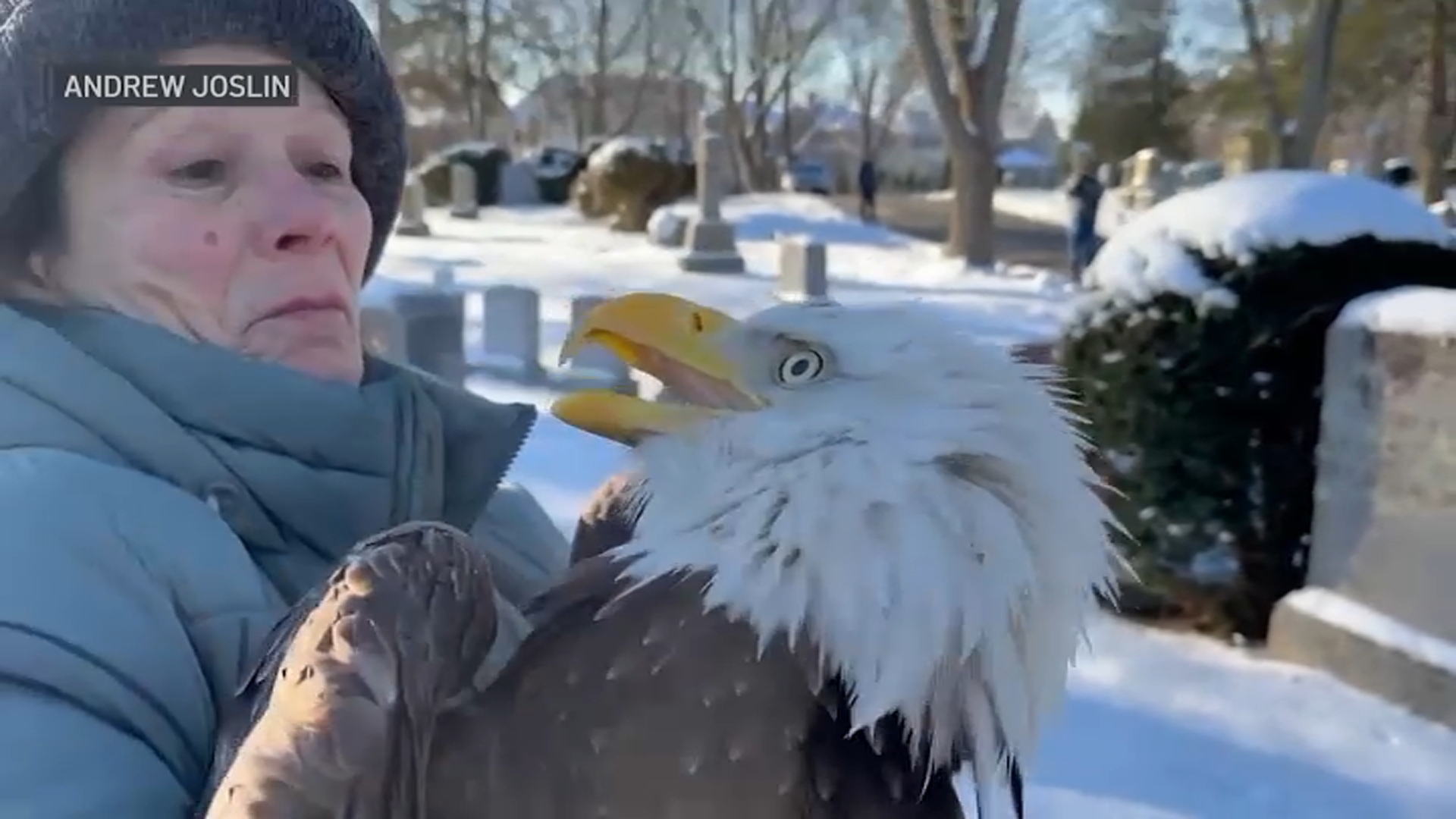The bald eagle is making a comeback in the Bay State. But the progress of these magnificent creatures is threatened as efforts to control the rat population in metropolitan areas like Boston have introduced dangerous and deadly chemicals into the eagles’ food chain.
Just four miles north of Boston, at Upper Mystic Lake in Medford, Massachusetts, John Herbert from Mass Audubon sets his gaze toward the tree line.
WATCH ANYTIME FOR FREE
Stream NBC10 Boston news for free, 24/7, wherever you are. |
“There's nesting bald eagles here,” he says.
Wildlife photographer Wayne Parris is there too, hoping to snap a photo of our national symbol.
Get updates on what's happening in Boston to your inbox. Sign up for our News Headlines newsletter.
“Especially when the bait fish are running. You see a lot of photographers out here,” Parris says.
After waiting for nearly two hours, a pair of majestic birds reward Herbert’s patience and swoop in.
“In the 80s, when the state was surveyed, there was no breeding eagles. And now we have, I think, close to 100, which is a great, great success,” said Herbert.
Herbert is the director of bird conservation at Mass Audubon. A decade ago, he says, there were no breeding pairs of bald eagles in the Boston metro.
But according to the smartphone app e-bird developed by the Cornell Lab of Ornithology, there have been more than 20 bald eagle sightings in the past week. That includes sightings in Quincy, Worcester, Marlborough, Stoneham, Medford, Sharon, and Beverly.
“They love to eat fish. They kind of eat whatever they can get. Like rodents,” says Herbert.
Rodents are a convenient food source for eagles, but that can sometimes prove deadly.
A bald eagle known as MK was found in an Arlington cemetery this past winter. Despite attempts to save the bird, it died two days later from blood hemorrhaging.
The cause of death- rat poison.
Dr. Maureen Murray at the Tufts Cummings School of Veterinary Medicine has been studying the effects of anticoagulant rodenticides, or SGARS, on birds of prey for almost 20 years. She says they’ve diagnosed some bald eagles as having died due to anticoagulant rodenticides.
Most of her research involves owls and hawks and she says 90% of the birds she’s studied have had these chemicals in their tissues.
The poison is commonly found in bait traps and eaten by rodents. Murray says when rodents eat the bait in traps, the poison is stored in their livers.
“So that means that any animal that then ingests that first animal, if they ingest a high enough dose, a toxic dose, they will also be poisoned by the anticoagulant,” she says.
Murray says four bald eagles in Massachusetts have died from anticoagulant rodenticide since 2021.
Though SGARS aren’t available to the public and can only be used by licensed professionals, smaller communities are using the poison to help control the rat population and unintentionally harming birds of prey.
The use of rodenticides has sparked protests around the state like one in Arlington organized after MK died in early March.
“So, if you start to look around the ground, you'll start to see holes,” says Dr. Marieke Rosenbaum pointing at a tree.
Inside this centuries-old cemetery in downtown Boston, Rosenbaum is busy checking bait traps. She says there are extensive rat burrow systems all around here and they have easy access to food, pointing at an open dumpster on the other side of the fence.
“And of course, across the street, there are a bunch of restaurants for them,” she says.
Dr. Rosenbaum has been working on the Boston Urban Rat study at Tufts since 2017. She’s examining different infectious diseases in urban rats to determine if those diseases pose a risk to humans in the city.
Rosenbaum says the risk isn’t that high and rats get a bad rap because of centuries-old thinking.
“The rats are here to stay. They are part of our urban ecosystem. And it's unrealistic to think that they won't be around. So, I think that the goal of eradication or completely killing them off is unrealistic,” she said.
But keeping their numbers in check without a heavy reliance on SGARS is the challenge
“I think the best way to think about controlling them is to think more systematically about how we create environments that don't support the overgrowth of rat populations,” said Rosenbaum.
Reducing the need for SGARS lowers the number of poisoned rats eagles can eat, leading to a healthier coexistence for both creatures.
“That this really is something that a lot of individuals acting collectively to just decrease the reliance on rodent poisons as much as possible can really make a difference,” said Murray.
And that difference will hopefully ensure the bald eagles around Boston are here to stay.
“You know they're worth the effort to keep around for our children and our grandchildren,” says Herbert.



